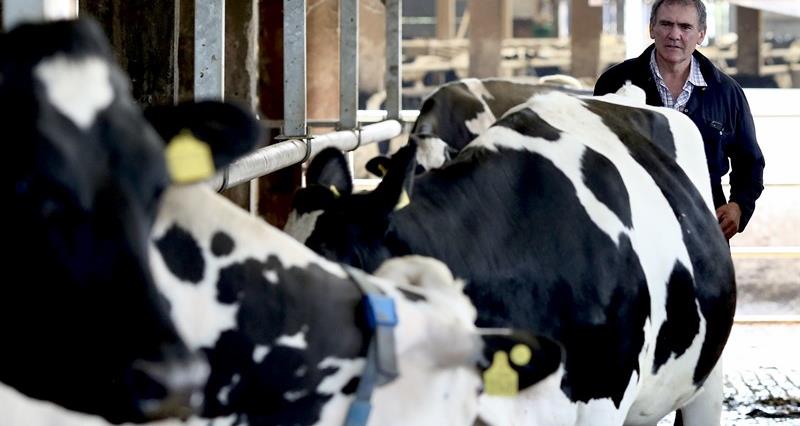NFU Cymru National Policy Adviser Tori Morgan explains what the new legislation means for members in Wales and gives us a run down of events that have taken place over the past 17 years.
The new Regulation guidance can be found at GOV.UK | The Agricultural Supply Chain Adjudicator (ASCA): making a complaint
Lobbying for our members
For most dairy farms, the milk contract is the single most important piece of paper and governs the relationship farmers have with their milk buyer. Unfair milk contracts have long been an area of concern for the dairy sector and as the timeline below demonstrates, for the last decade NFU Cymru, alongside the other UK Farming Unions (NFU, Ulster Farmers’ Union and NFU Scotland), has been lobbying to improve the fairness and transparency in the supply chain.
Throughout our lobbying work NFU Cymru has been clear, we don’t want to ‘fix anything which isn’t broken’ as there are many successful relationships that exist across Wales between farmers and milk buyers. However, there are others which place a disproportionate amount of risk on the farmer, and we saw most recently during the Covid-19 pandemic, how contract terms and pricing mechanisms could be changed at the buyer’s discretion often at short notice without reasonable discussion, negotiation, or agreement.
What is this new legislation?
The introduction of this legislation, known as the ‘Fair Dealing Obligations (Milk) Regulations 2024’ represents a significant step forward towards a fairer supply chain and introduces mandatory minimum terms for dairy contracts, essentially a code of conduct which all contracts must adhere to.
The legislation has now completed its passage through UK Parliament and is now in force. The regulations provide an implementation period to allow for a managed transition as all contracts between a farmer and their milk buyer will need to be updated, negotiated, and brought into compliance with the code. The key dates to be aware of are:
- 9th July 2024 – all new milk contracts issued after this date must be compliant with the code.
- 9th July 2025 - all existing contracts that are already in place between farmers and their milk purchasers must be compliant with the code
How will the legislation be enforced?
From the start of this journey the four UK farming unions have believed that a mandatory code only works if there are measures in place to ensure it is being followed. The legislation contains extensive powers for the Secretary of State in Defra to oversee and enforce the code.
A farmer has the right to refer concerns about contracts which may breach the regulations to the Secretary of State, providing they have already followed the dispute resolution procedure set out in their contract. If the Secretary of State finds that there has been a breach, they will be able to impost a financial penalty and/or require the processor to pay compensation to the farmer.
Defra has established an Agricultural Supply Chain Adjudicator, who will (amongst other things) enforce the code on behalf of the Secretary of State. NFU Cymru is working with the other UK Farming Unions to engage with Defra to ensure that the proposed Adjudicator is fit for purpose and has the confidence of our producer members.
Legal advice
NFU Cymru members can access free initial legal and professional advice through NFU CallFirst on 0370 845 8458.
NFU Cymru farmer and grower members can also access the NFU’s Contract Checking Service.
The contract checking service is a service offered by the NFU panel firms of solicitors, in association with the Legal Assistance Scheme. The contract checking service can be accessed via NFU CallFirst. Under the contract checking service, the NFU’s panel firms will provide a fixed fee quote for carrying out an initial review of a contract and producing a report, based on your objectives and requirements.
The fee will vary depending on the length and complexity of the documents, but prices can start from as little as £275 + VAT for the initial report. If you wish, the panel firm will also be able to consider the contract in more detail and assist with the renegotiation of specific terms, as well as advising on the implications for your business; this later stage will be charged at the firm’s standard hourly rate, minus a 12.5% discount for NFU Farmer and Grower members. LAS subscribers can apply for a contribution of £250 per contract, up to a maximum of
four contracts at £1,000, from the NFU’s Legal Assistance Scheme as part of the contract checking package. The panel firms will be able to advise on all aspects of a contract, including whether it is compliant with the new regulations.

